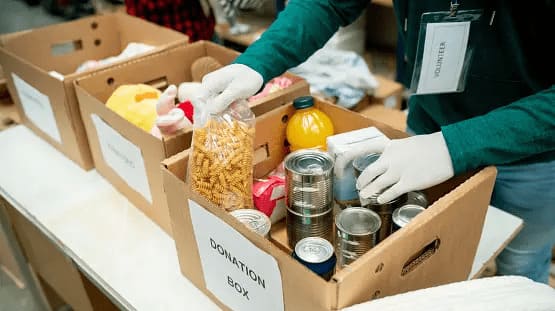Food Aids
Food is a basic necessity for survival and also the key to a healthy life. Many countries are facing the double burden of hunger and malnutrition on a daily basis and more people lack vital micro-nutrients (e.g. iron, zinc, vitamin A) , affecting their health and life expectancy. Nearly a quarter of all children aged under five today are stunted, with diminished physical and mental capacities, and less than a third of all young infants in 60 low- and middle-income countries meet the minimum dietary diversity standards needed for growth.
A Global Food Crisis is Increasing Food Insecurity
Recent global challenges have reversed decades of progress made in the fight against poverty and hunger in low- and middle-income countries around the world.
Armed conflicts, inflation, fertilizer shortages, COVID-19, and extreme weather are colliding to create a global food crisis.
Malnutrition, starvation and chronic health issues are a serious and potentially life-threatening reality for children living in poverty, and the increased food insecurity has become an even more severe risk for the poor and placing families in a desperate situation and perpetuating the cycle of generational poverty, especially the cycle of rural poverty.
Our goal is to seek to end world hunger and protect the dignity of people with greater prosperity for all.
Being hungry impacts everything in people’s lives. Everyone Deserves a Life Free From Hunger and Poverty
A world where no child goes to bed hungry is the goal.
When we provide food, we don’t simply fill their stomachs, but we build their spirits and grant them the time to focus on progressing. With food at home, more people can work, study and truly thrive.
How does The Trusted Save Help?
The Trusted Save is responding to global food crisis by:
- Influencing decision-makers and addressing cumulative, long-term, indirect, and global consequences on food crisis in the United Nations, and others food aid organisations around the world .
- Carrying out research and evaluation to inform policy and practice and help
- Support food aids organizations and the communities with food parcels, and many other items
- Promoting more productive agriculture through provision of significant support to pastoral farmers and fishermen in terms of access to land , agricultural inputs, water control, market organisation.
- Implementing overarching development and investment policies that encourage food production, including policies on agricultural training, farmer support, strengthening food markets.
Join us today and break the hunger by providing impoverished families around the world with access to nutritious food, medicine, and others that can save their lives.
Your donation to the Global Food Crisis is needed now more than ever!

“Please we cannot accept any donations. The organization hasn’t started yet “
